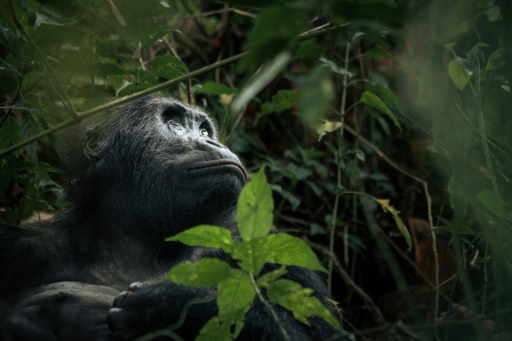
[ad_1]
Rangers at a UN-listed wildlife sanctuary in eastern Congo protested Tuesday for the sixth day in a row in what they say were months of unpaid wages, witnesses said.
Kahuzi-Biega National Park eco-guards have set up barricades at the entrance preventing employees from entering, although residents of the vast park have been allowed through, they told AFP.
The park, inscribed on the UNESCO World Heritage List, comprises 600,000 hectares (1.5 million acres) of tropical rainforest, which is home to the world’s largest population of eastern lowland gorillas.
Rangers started their protest on December 24, claiming they had not been paid for 10 months. Witnesses say that over the next four days, protesters fired warning shots at the entrance to the park.
René Muderwha, head of a local civil society association in Miti, where the park is headquartered, said the dispute could dangerously “erupt” and called on both sides to quickly find a lasting solution.
“It is unthinkable to make people work without pay,” he said, but criticized the way the protest was conducted.
“They have the right to claim their wages, but it was done according to paramilitary standards.”
Park spokesman Hubert Mulongoy said the issue of wage arrears “does not concern only the rangers, but all workers in Kahuzi-Biega”.
“The troublemakers have already been identified – they will have to answer for their actions in military justice,” he said from Bukavu, about 30 kilometers (18 miles) from the park entrance.
“We will do everything to restore order in this place,” said Louis Tshimwang, army spokesman in the region.
An environmental radio station, Gorilla FM, which operates from the park headquarters, said it had to stop broadcasting for now.
Armed protesters intimidated journalists and studio technicians, two reporters said.
Kahuzi-Biega, which operates under the Congolese Institute for the Conservation of Nature (ICCN), has in recent years fought against illegal activities, including the presence of armed groups and the burning of charcoal.
Source link